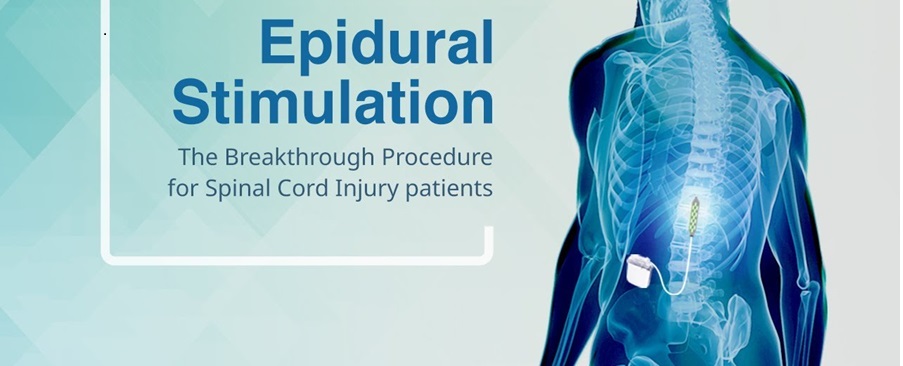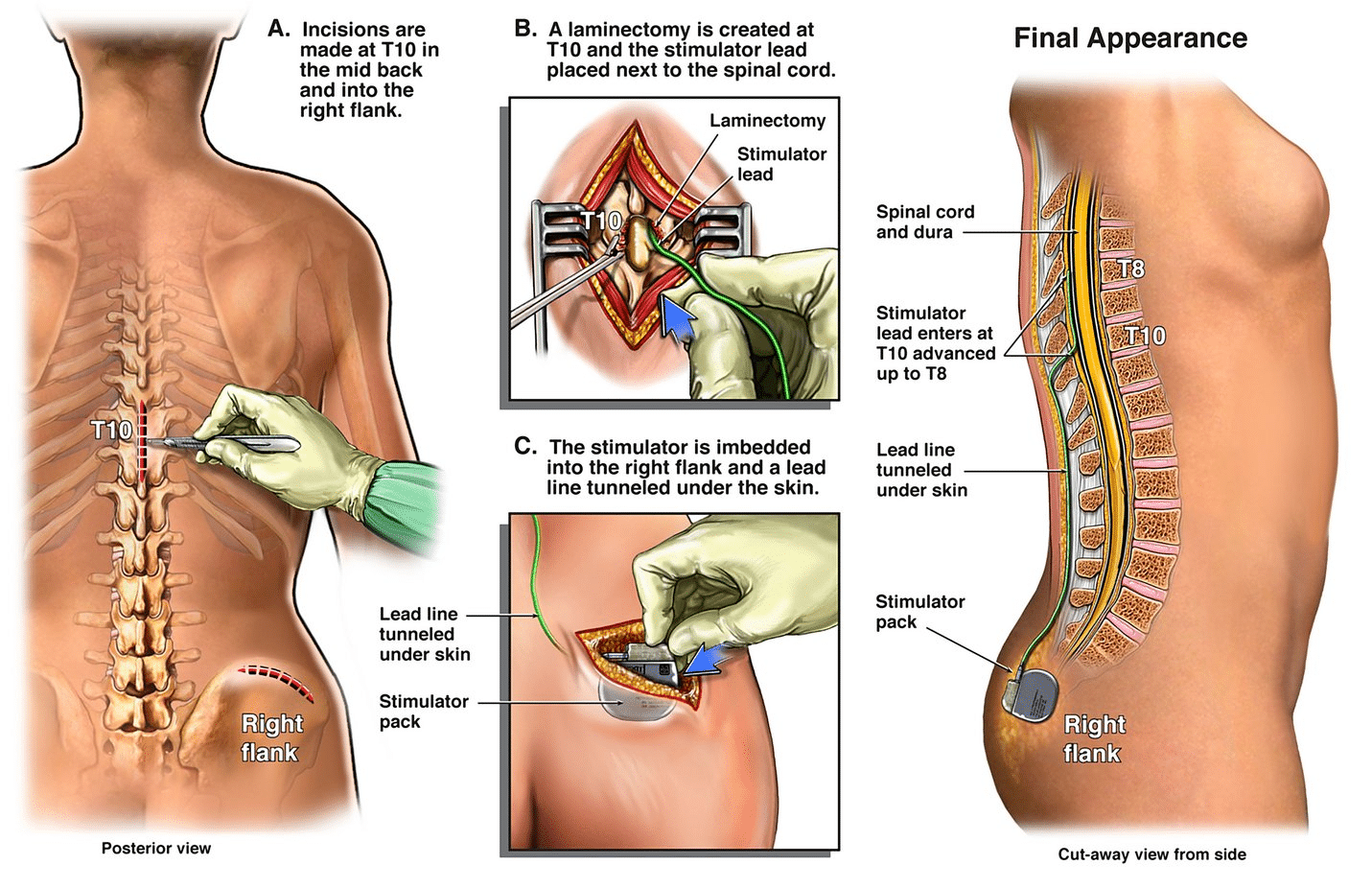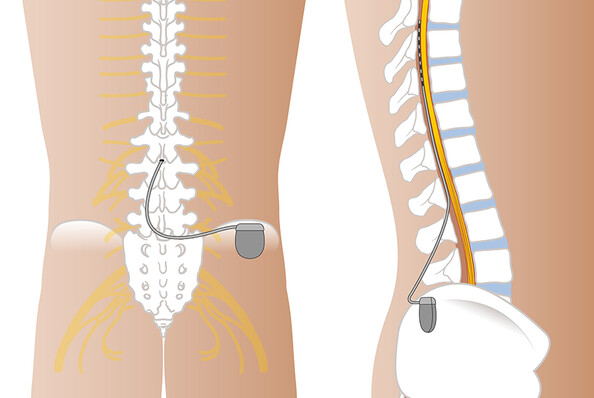Epidural stimulation spinal cord injury surgery in india

Epidural Stimulation Spinal Cord Injury Surgery in India
Are you looking for the best Epidural Stimulation Spinal Cord Injury Surgery in India at an affordable Cost? Please WhatsApp / Viber on +91 9582708782
What Is Epidural Stimulation Spinal Cord Injury Surgery?

Spinal cord injuries (SCI) are among the most devastating conditions that can profoundly affect a person's life. These injuries can lead to partial or complete loss of motor function and sensation below the level of injury. For years, medical interventions have focused primarily on preventing further damage and managing symptoms, but recent advancements have introduced innovative treatments to restore functionality. One such groundbreaking procedure is epidural stimulation surgery, which has shown significant promise in improving the quality of life for individuals with spinal cord injuries.
This article delves into the science, procedure, benefits, risks, and outcomes of epidural stimulation surgery for spinal cord injuries.
Understanding Epidural Stimulation
Epidural stimulation involves the use of an implanted device to deliver electrical signals to the spinal cord. The goal is to stimulate the nerve networks below the site of injury, enabling communication between the brain and the body—a function that is often disrupted in spinal cord injuries.
This technique targets the epidural space, a region in the spine surrounding the dura mater, which encases the spinal cord. By applying electrical currents, epidural stimulation can activate dormant neural circuits, potentially restoring voluntary movements and improving autonomic functions.
How It Works
- Electrical Stimulation: Electrodes are implanted in the epidural space, typically over the lower spine.
- Pulse Generator: A small device, known as an implantable pulse generator (IPG), delivers controlled electrical impulses to these electrodes.
- External Control: Patients use a handheld controller to adjust the intensity and patterns of stimulation, allowing them to target specific functions.
- Rehabilitation Training: The stimulation is combined with intensive physical therapy to maximize its effectiveness and help the patient regain motor functions.
Who Can Benefit from Epidural Stimulation?
Epidural stimulation is primarily designed for individuals with spinal cord injuries, but it may not be suitable for everyone. Ideal candidates include:
- Chronic Spinal Cord Injury Patients: Those who have had their injuries for at least six months to a year, as this allows for stabilization of the injury.
- Incomplete or Complete Spinal Cord Injuries: While more effective in incomplete injuries, some benefits have been observed in complete injuries as well.
- Stable Medical Condition: Candidates must not have significant medical issues that could complicate the procedure.
- Commitment to Rehabilitation: The success of epidural stimulation heavily depends on the patient’s willingness to engage in rigorous physical therapy post-surgery.
The Procedure

Epidural stimulation surgery is a multi-step process that involves evaluation, implantation, and follow-up rehabilitation.
1. Pre-Surgical Evaluation
Before undergoing the procedure, patients undergo a comprehensive evaluation to determine their suitability. This includes:
- Medical History Review: Examining the patient’s injury and overall health.
- Imaging Studies: MRI or CT scans to locate the injury and assess the spinal structure.
- Functional Assessment: Evaluating residual motor and sensory functions.
2. The Surgical Process
The surgery is typically performed in the following stages:
- Electrode Implantation: Small electrodes are placed in the epidural space over the affected spinal segments. The placement is precise and guided by imaging techniques.
- Pulse Generator Placement: A compact device is implanted under the skin, usually in the lower abdomen or buttock area. This generator connects to the electrodes via thin wires.
- Initial Testing: During the surgery, the system is tested to ensure proper placement and functionality.
The procedure usually takes a few hours and requires general anesthesia.
3. Post-Surgical Follow-Up
After the surgery, the patient begins a series of follow-up visits to:
- Adjust the stimulation settings.
- Monitor the healing process.
- Begin rehabilitation therapy tailored to their needs.
Benefits of Epidural Stimulation Surgery
Epidural stimulation has shown remarkable results in improving various aspects of life for individuals with spinal cord injuries:
1. Restoration of Voluntary Movements
- Patients have reported the ability to move their legs, stand, and even take steps with assistance.
- The extent of recovery varies, but any regained functionality significantly enhances independence.
2. Improved Autonomic Functions
- Bladder and Bowel Control: Enhanced control reduces reliance on external aids and improves comfort.
- Sexual Function: Many patients experience improvements in sexual health.
- Blood Pressure Regulation: Stabilized blood pressure reduces episodes of dizziness and fainting.
3. Enhanced Quality of Life
- Greater physical independence and reduced reliance on caregivers.
- Psychological benefits, including increased confidence and reduced feelings of helplessness.
Risks and Complications
As with any surgical procedure, epidural stimulation carries certain risks. These include:
- Infection: At the surgical site or around the implanted device.
- Device Malfunction: Issues with the pulse generator or electrodes requiring repair or replacement.
- Pain or Discomfort: Temporary pain at the implantation site.
- Limited Efficacy: Not all patients experience significant improvements.
- Surgical Risks: Complications such as bleeding or anesthesia-related issues.
The Role of Rehabilitation
Epidural stimulation is not a standalone cure. It is most effective when combined with intensive physical therapy, which helps:
- Strengthen muscles and improve coordination.
- Train the body to respond to stimulation.
- Maximize recovery of motor functions.
Rehabilitation programs are customized based on the patient’s goals and progress.
Success Stories and Outcomes
While outcomes vary among individuals, many success stories highlight the transformative potential of epidural stimulation. Examples include:
- Patients regaining the ability to stand or walk with assistance.
- Enhanced control over autonomic functions such as bladder and bowel management.
- Improved overall well-being and reduced dependency on caregivers.
Clinical studies have reported that a significant percentage of patients experience meaningful improvements, making this procedure a beacon of hope for those with spinal cord injuries.
Alternatives to Epidural Stimulation
For individuals who may not qualify for or choose not to undergo epidural stimulation, alternative treatments include:
- Physical Therapy: Focused on strengthening muscles and improving mobility.
- Functional Electrical Stimulation (FES): Uses external devices to stimulate muscle contractions.
- Stem Cell Therapy: An experimental approach aimed at regenerating damaged nerves.
- Assistive Devices: Wheelchairs, braces, and robotic exoskeletons to aid mobility.
Why Epidural Stimulation Spinal Cord Injury Surgery in India?
India has emerged as a global hub for advanced medical treatments, including epidural stimulation surgery for spinal cord injuries. Here are the key reasons why patients from around the world choose India for this procedure:
1. Highly Skilled Surgeons
- India is home to internationally trained neurosurgeons and spinal specialists with extensive experience in performing epidural stimulation surgeries.
- Many doctors have affiliations with global medical organizations, ensuring adherence to the highest standards of care.
2. State-of-the-Art Facilities
- Leading hospitals in India are equipped with cutting-edge technology, including advanced imaging systems and robotic-assisted surgical tools.
- These facilities offer comprehensive care, including pre-surgical evaluation, surgery, and post-operative rehabilitation.
3. Affordable Costs
- The cost of epidural stimulation surgery in India is significantly lower than in Western countries, without compromising on quality.
- Epidural Stimulation Spinal Cord Injury Surgery in India starts from 25000 to 35000 USD.
- Patients can save up to 60-80% of the expenses compared to similar treatments in the US, UK, or Australia.
4. Comprehensive Rehabilitation Programs
- Indian hospitals provide holistic rehabilitation programs tailored to each patient’s needs.
- These programs include physical therapy, occupational therapy, and psychological support to maximize recovery outcomes.
5. Medical Tourism Support
- Many Indian hospitals have dedicated international patient care teams to assist with visa processing, travel arrangements, accommodation, and language translation.
- This ensures a seamless experience for patients traveling from abroad.
6. Positive Outcomes and Testimonials
- India has a growing number of success stories from patients who have undergone epidural stimulation surgery.
- High success rates and patient satisfaction make India a preferred destination for this advanced treatment.
Epidural Stimulation Surgery for Spinal Cord Injury Hospital in India
If you're considering Epidural Stimulation Surgery for Spinal Cord Injury in India, several top-tier hospitals offer this advanced treatment. Here are some renowned institutions known for their expertise in this area:
IBS Hospital - New Delhi, India
Specializes in neuromodulation and offers advanced epidural stimulation treatments for spinal cord injuries.
Indian Spinal Injuries Center (ISIC)- New Delhi, India
Provides state-of-the-art facilities for managing spinal ailments, staffed with internationally trained spine surgeons.
Medanta The Medicity - Gurugram, India
A multi-specialty hospital known for its advanced neurosurgery and spine care departments.
Max Super Speciality Hospital - New Delhi, India
Offers comprehensive spinal cord injury treatments with a team of experienced neurosurgeons.
MAX HEALTHCARE - New Delhi, India
Equipped with modern technology and a dedicated spine care unit for various spinal treatments.
Artemis Hospital - Gurugram, India
Provides advanced medical care with a focus on neurology and spine surgery.
Kokilaben Dhirubhai Ambani Hospital - Mumbai, India
Features a dedicated center for neurosciences offering treatments for spinal cord injuries.
Fortis Memorial Research Institute - Gurugram, India
Known for its comprehensive spine care program and advanced surgical techniques.
These hospitals are equipped with state-of-the-art technology and staffed by experienced medical professionals specializing in spinal cord injury treatments. It's advisable to consult with these institutions directly to understand the treatment options, costs, and other relevant details tailored to your specific needs.
Conclusion
Epidural stimulation surgery represents a groundbreaking advance in the treatment of spinal cord injuries, offering hope to individuals who have long been told their condition is irreversible. This innovative procedure can transform lives by enabling the restoration of voluntary movements and improving autonomic functions. However, it requires a strong commitment to rehabilitation and carries certain risks. Consultation with a specialized medical team is essential to determine whether this treatment is suitable for an individual’s specific condition.
As research continues and technology advances, the future of epidural stimulation looks even brighter, potentially paving the way for greater recoveries and improved quality of life for spinal cord injury patients. If you're searching for the best Epidural Stimulation Spinal Cord Injury Surgery in India at an affordable cost, you're in the right place. India is a global leader in providing high-quality medical care at a fraction of the cost compared to Western countries. Here's why choosing India for this advanced surgery is a smart decision.